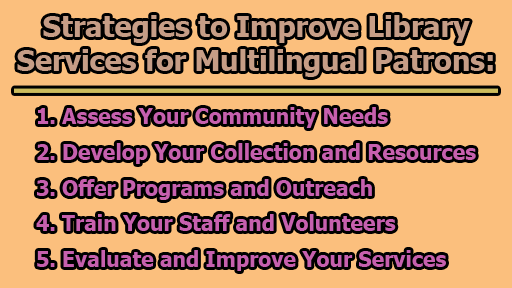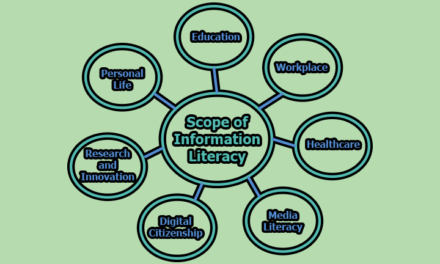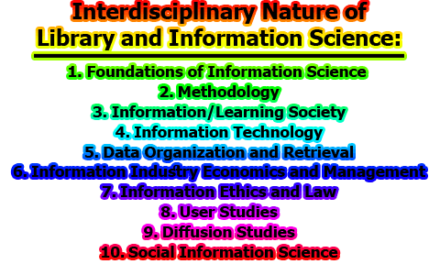Strategies to Improve Library Services for Multilingual Patrons:
Library services have evolved significantly over the years. Today, they are not merely about lending books, but they also play a vital role in connecting with diverse communities and cultures. Libraries are increasingly serving multilingual patrons, and to ensure inclusivity and accessibility, it is imperative to tailor services to meet their specific needs and expectations. This article explores key strategies to improve library services for multilingual patrons.
1. Assess Your Community Needs: Understanding the unique needs, preferences, and expectations of multilingual patrons is the first crucial step in providing effective library services. To do this, libraries can conduct surveys, interviews, focus groups, or observations to gather valuable insights. Additionally, data from sources like census records, local schools, or other demographic information can help identify the linguistic diversity within the community. This information allows libraries to customize their services and address the specific challenges and requirements of multilingual patrons.
2. Develop Your Collection and Resources: The heart of any library’s service is its collection. To cater to multilingual patrons, it is essential to build a collection that reflects their languages and cultures. Libraries can acquire materials in various languages, formats, and genres, including books, magazines, newspapers, audiobooks, DVDs, and online resources. Moreover, catalogs, signage, labels, and guides can be made bilingual or multilingual to facilitate ease of access. Collaboration with other libraries, organizations, or publishers can further expand the available resources for multilingual patrons.
3. Offer Programs and Outreach: Library programs and outreach efforts are an effective means of engaging multilingual patrons and fostering connections with their languages and cultures. Libraries can organize events, workshops, classes, clubs, and festivals tailored to specific languages or designed to be inclusive to all, such as storytimes, book clubs, language exchanges, cultural performances, or celebrations. Outreach efforts can involve partnerships with local schools, community centers, media, and social networks to promote library services and encourage patron participation.
4. Train Your Staff and Volunteers: Cultural competency and linguistic responsiveness are essential qualities for library staff and volunteers when serving multilingual patrons. Professional development opportunities such as workshops, webinars, courses, and mentoring can equip them with the knowledge of different languages and cultures within the community. They can also learn best practices and strategies for effectively and respectfully serving multilingual patrons. Recruiting staff and volunteers who speak various languages or possess relevant experience and skills can be an added advantage.
5. Evaluate and Improve Your Services: Continuous improvement is a cornerstone of providing library services to multilingual patrons. Libraries should regularly evaluate their services based on feedback, data, and outcomes. Surveys, interviews, focus groups, observations, and statistical analysis can be used to gauge patron satisfaction, service usage, impact, and challenges. This information is invaluable in identifying the strengths, weaknesses, opportunities, and threats of services, and making necessary adjustments or improvements accordingly.
In conclusion, library services for multilingual patrons play a pivotal role in fostering inclusivity and community engagement. By assessing community needs, developing diverse collections, offering culturally rich programs and outreach, training staff and volunteers, and consistently evaluating and improving services, libraries can ensure they meet the unique needs and expectations of their multilingual patrons. As libraries continue to evolve, these steps are essential to providing a welcoming and inclusive environment for all members of the community, regardless of their linguistic and cultural backgrounds.

Library Lecturer at Nurul Amin Degree College










